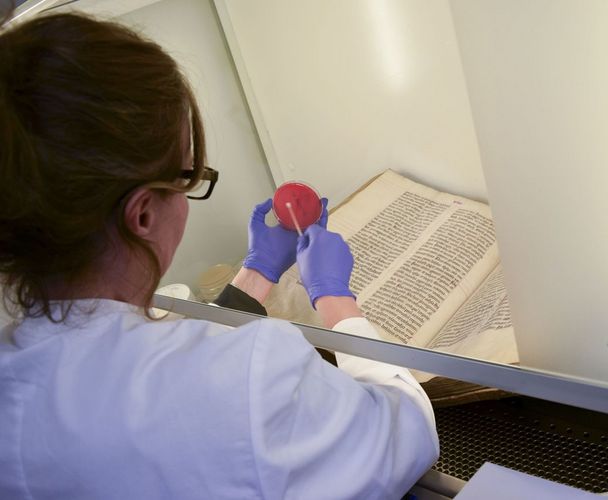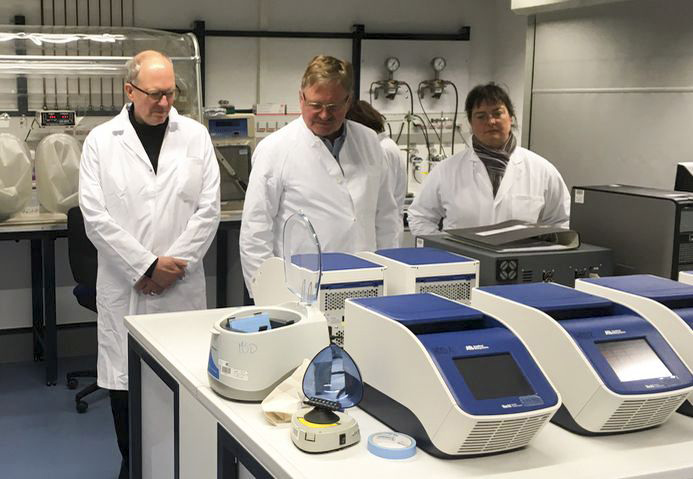The collaborative, cross-institutional project will conduct microbiological analyses of late medieval tomes (1250–1500 CE), with an interdisciplinary evaluation involving philosophy, microbiology and cultural studies. The latter is the task of the researchers in Leipzig with their sub-project, which is headed by UB Director Professor Ulrich Johannes Schneider.
Our traditional understanding of books as cultural assets is based on their non-living components, which is why libraries are defined as assemblages of inanimate objects. The joint research project between the UB Leipzig, the TU Braunschweig and the Leibniz Institute DSMZ questions the widespread assumption in conservation practice that microbes are harmful to artefacts and therefore a factor to be eliminated. Instead, the project considers the hypothesis that microbes – which are always present – should be regarded as integral parts of these cultural assets in their own right. Professor Schneider, who is in charge of the project in Leipzig, explains: “It is our assumption that the common orders of knowledge for ‘books’ and ‘libraries’ require an additional, material, component.”
Library holdings are still perceived as a contrast to so-called “living collections”, and the project is turning precisely this notion on its head – to begin with, by comparing the UB Leipzig’s manuscript collections with the microbe bank of the Leibniz Institute DSMZ. The results will be combined with historical studies of the manuscripts used, offering a means of examining the relationship between the book as an artefact and the content it conveys. The approach is both experimental and innovative. It will provide the basis for further research which may even justify a reassessment of book-related aspects of late medieval history.
Specialist contact person:
Professor Ulrich Johannes Schneider
Director of the UB Leipzig
Phone: +49 341 97-30501
Send e-mail
Press contact:
Caroline Bergter
UB Leipzig Public Relations Officer
Phone: +49 341 97-30565
Send e-mail
































































